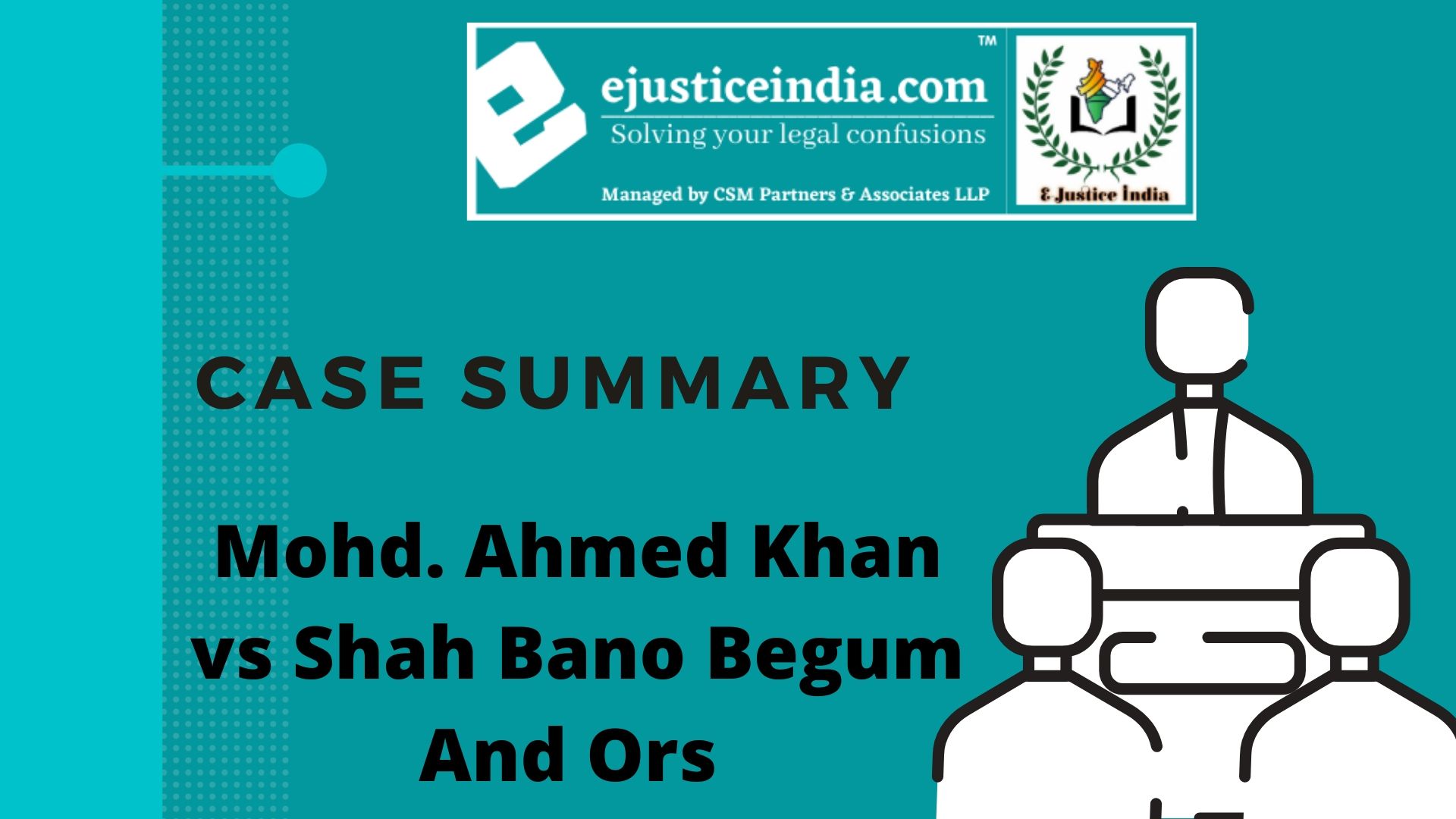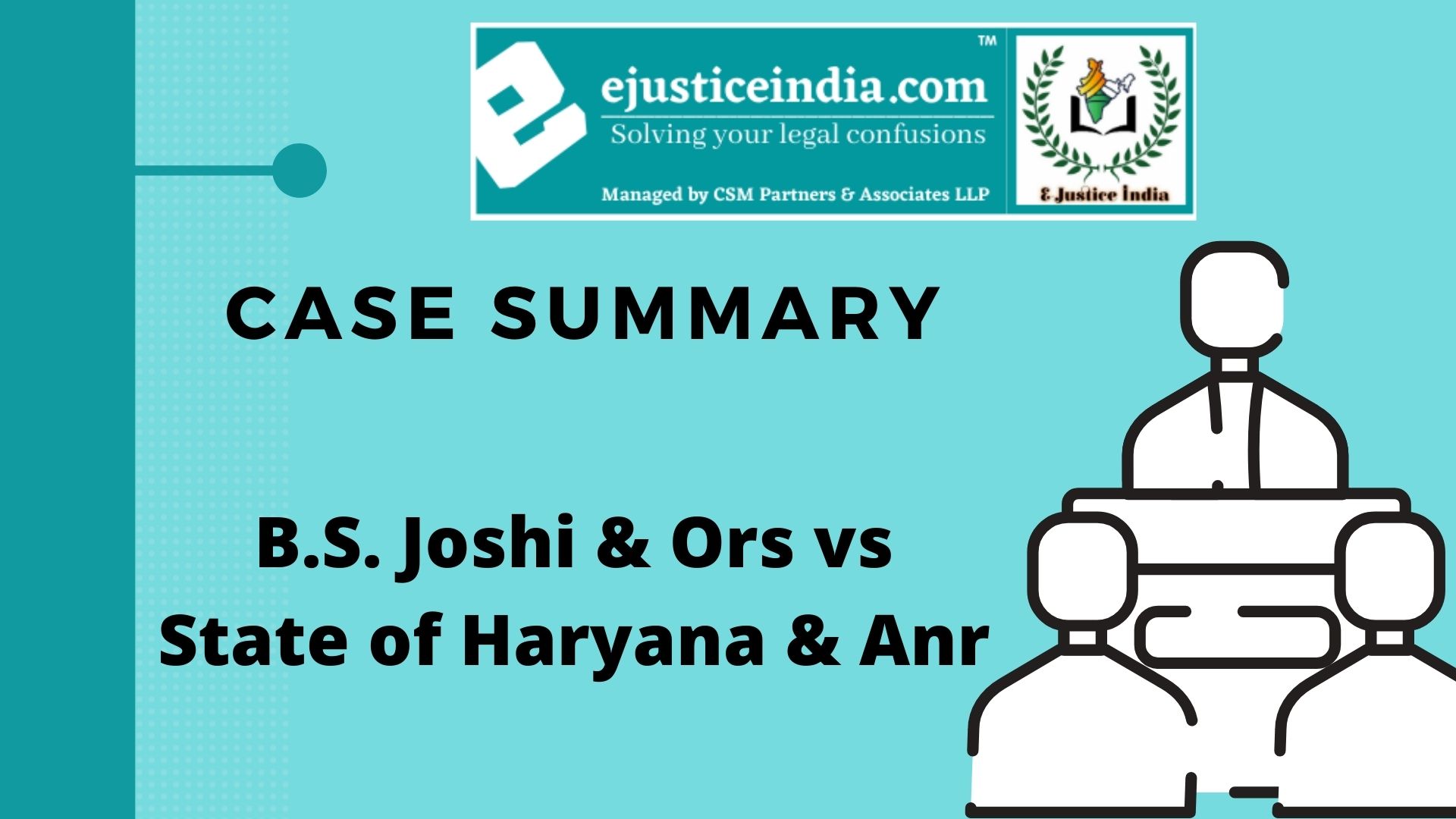John Vallamattom & Anr. vs Union of India
Case Name : John Vallamattom & Anr. vs Union of India
Author : Ishita Arora
Citation
(2003) 6 SCC 611
Bench
Chief Justice V.N. Khare, Justice S.B. Sinha andJustice AR. Lakshmanan
Introduction
Uniform Civil Code has been defined in the Indian Constitution in Article – 44 of Directive Principles of State Policy. It says that State has a duty to secure a Uniform Civil Code in India for the citizens of India. One can say that it means one country one law.
Uniform Civil Code includes a set of laws which will govern personal issues of all Indian citizens irrespective of religion. The present case shows that absence of a uniform civil code in the country has made the Christians suffer discrimination for more than five decades.
The main question dealt by Supreme Court in this case was that whether Section 118 of the Indian Succession Act, 1925 is discriminatory and unconstitutional.
Facts of the case
The facts of the case state that John Vallamattom is a Christian priest from Kerala and the other petitioner is also a Christian. They have filed a writ petition under Article 32 of the Constitution in 1997 stating that Section – 118 of the Indian Succession Act, 1925 discriminates the Christians because it imposes arbitrary and unreasonable restrictions on them related to donation of their personal property for various religious or charitable purposes through will. It stated that a Christian having a nephew/niece or any other near relation is not eligible to bequeath the property for religious or charitable purposes unless a prescribed procedure is followed. That procedure was complicated, harsh and rigorous. So, the petitioners sought that the section 118 of the Indian Succession Act, 1925 be declared as unconstitutional.
Issues and Fact of law
- Whether Section – 118 of the Indian Succession Act, 1925 is constitutionally valid?
Judgement
The Supreme Court held that Section – 118 of the Indian Succession Act, 1925 is unconstitutional as it violates Article 14 of the Constitution. The rigorous procedure mentioned under Section 118 of the said Act for testamentary disposition of property for religious or charitable purposes is applicable to Christians only and not to a person belonging to any other religion.
Also, the classification of Christian testators and other religion testators is extremely reasonable. Testators constitute a homogenous category and they cannot be divided arbitrarily on any vague basis of classification.
The Supreme Court also observed that Article- 44 of the Constitution provides that the “State shall endeavor to secure for all citizens a Uniform Civil Code throughout the territory of India.” However, Article 44 of the Constitution has not been due importance as there is no common civil code in India. The court emphasized on the necessity of Uniform Civil Code as it will help in national integration and will also eliminate the contradictions on the basis of ideology of different communities.


